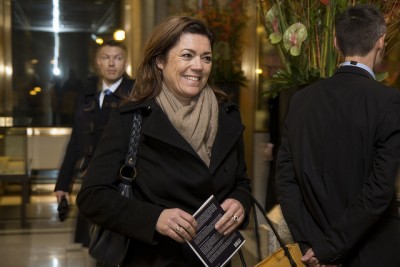As employer representatives and labour leaders sat down this week to negotiate annual wage settlements for workers, their own incomes were under scrutiny as well. The leaders of Norway’s major employer organizations are paid much more than their counterparts in the labour movement.

Debate flew in Norway on Monday after newspaper Dagens Næringsliv (DN) reported that the head of the country’s biggest trade union federation LO earns more than the prime minister. Many were surprised to learn that LO boss Gerd Kristiansen and her fellow labour leaders all earn incomes of around NOK 1 million a year or more, high even by Norwegian standards.
On Tuesday, however, DN reported the income numbers for the leaders of the organizations representing employers, who are arguing for minimal if any pay raises for workers this year. The labour leaders’ pay suddenly paled in comparison.
NHO boss earns more than three times Erna’s pay
Kristin Skogen Lund, head of employers’ organization NHO, earns more than twice what Kristiansen does, with a base salary of NOK 3,427,790 plus another NOK 950,000 in compensation for her board membership. That makes for a total of NOK 4,377,790 (USD 533,877), nearly three times Kristiansen’s pay and more than three times that earned by Prime Minister Erna Solberg.
Lund was in the studio at state broadcaster NRK when Kristiansen was grilled over her relatively high pay during an early morning debate program on Monday. Lund stayed quiet and avoided any questions over her own much higher salary at the time. Later in the day she was all smiles and unusually conciliatory towards Kristiansen, even praising her as their negotiations started. Seldom have the two sides been more agreeable at the start of wage talks, because of mutual concerns over the effect of much lower oil prices on Norwegian business. “It just shows that we’re both taking responsibility and we’re happy about that,” Lund told NRK.
Shipowners’ boss close behind
Lund earned the most of all the leaders of the employers’ organizations, followed most closely by Sturla Henriksen, head of the Norwegian Shipowners’ Association, with a salary of NOK 3,376,000. That was followed by Idar Kreutzer’s pay as head of Finans Norge, the organization that represents financial institutions in Norway. Kreutzer, a former CEO of insurance company Storebrand, earns NOK 3,856,000 including extra compensation for board representation.
The most controversy swirled around the NOK 2,210,000 paid to Anne-Kari Bratten, head of employers’ group Spekter, which represents a variety of employers from Nettbuss to the Norwegian Opera and other ventures tied to the public sector. Bratten, DN reported, received a 4.2 percent pay raise for this year at a time when raises for workers are averaged 2.9 percent.
‘Wild’ raise
“That sounds wild out,” remarked a member of the nurses’ union in Oslo, who earns less than a quarter of Bratten’s pay. Bratten was reluctant to discuss her pay or her raise, claiming it was up to Spekter’s board to set her income. Spekter Chairman Dag Mejdell, who also heads the Norwegian postal system Posten, told DN that the board was “very satisfied with the results Bratten has achieved for Spekter.”
Asked whether 4.2 percent was an acceptable raise for Posten’s employees this year, he said “no,” claiming he couldn’t see any ties between Posten salaries and that for the Spekter boss. “And in general, the board of Spekter sees a need for moderate wage settlements this year,” he added, clearly making an exception for the Spekter’s leader. Economists at Norway’s biggest banks, meanwhile, predicted that real wage growth in Norway will amount to only 0.5 percent this year.
newsinenglish.no/Nina Berglund

